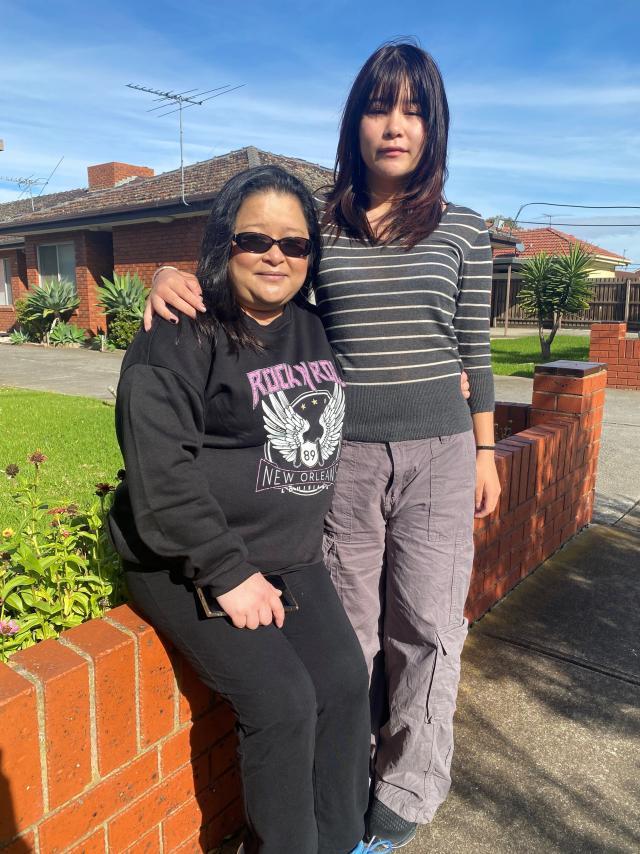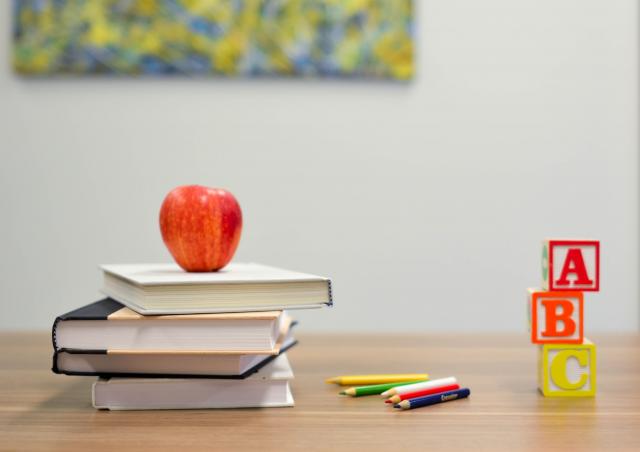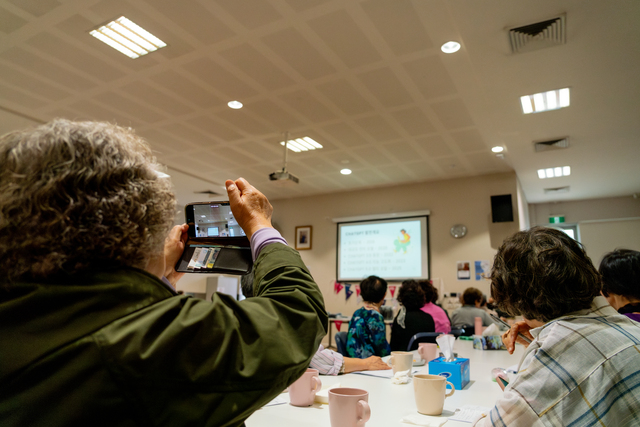For Myha Le and her daughter Mikayla, life was less stressful during Melbourne’s COVID-19 lockdowns of 2020 and 2021.
While staying home during the city’s six lockdowns, the St Albans residents didn’t have as many costs and financial pressures.
Post-pandemic life for them is proving to be expensive, with the rising cost of living forcing them to think “more wisely” about how they spend their money. Sometimes this means deciding whether they can afford to eat meat.
Myha said she is worried about what will happen if the cost of living continues to rise – although she is almost certain it will.
Health conditions, including two heart bypass surgeries and hip and back issues, prevent her from working. Half of her income is spent on rent leaving the other half to cover bills, food, transport and Mikayla’s school costs.
“I thought COVID was better than now because you didn’t go out and spend as much money … now it is expensive,” Myha said.
“Every time we leave the front door it costs us money.
“We used to eat out a lot but now we can’t. After the rent and bills … there is not a lot left.
[When] you don’t have much money, you don’t go out … you feel isolated and keep to yourself.”
At 14-years-old Mikayla is acutely aware of the rising cost of living.
“I haven’t been able to go out as much, or if I do, or of I buy food at school, I have to budget.”
To help ease the family’s financial burdens, Myha buys as many of Mikayla’s school supplies as possible through the Facebook Marketplace.
The Smith Family also helps with Mikayla’s education expenses through its Learning for Life Scholarship.
Through the program, sponsors make a monthly donation which go towards school uniforms, laptops and back to school costs for students.
“The Learning for Life program gives me peace of mind knowing [Mikayla] will get those payments,” Myha said.
Mikayla said the scholarship, which she has received she 2019, enabled her to keep up with her schoolwork.
“You can’t really do all of your schoolwork without things like a laptop and internet now, that was a big help during lockdowns and has meant I can keep up with my friends,” she said
A recent survey by The Smith Family found cost of living increases were having a larger impact on child poverty than the COVID-19 pandemic.
Seventy-two per cent of survey respondents believed child poverty had worsened as a result of the cost of living crisis, up from 56 per cent in December 2020.
Eighty-one per cent of respondents expected child poverty to rise in the next year due to the rising cost of living, agreeing that cost of living increases have made it harder for students experiencing poverty to progress their education.
The Smith Family chief executive Doug Taylor said as more families are pushed to the brink, a family’s ability to afford everything needed for their child’s education will collapse due to the pressure to put food on the table, pay utilities, and put petrol in the tank this winter.
“We’re seeing how families experiencing disadvantage are having to make difficult choices about how they spend their limited resources. Children are missing out on things like excursions, books, and digital devices and the extra learning programs and support they might need. And sadly, without the things they need for their learning, they are at risk of falling behind at school,” he said.
He encouraged people to support The Smith Family’s 2023 Winter Appeal to enable more children access its learning and mentoring programs to help with education costs.
Details: http://www.thesmithfamily.com.au/winter







